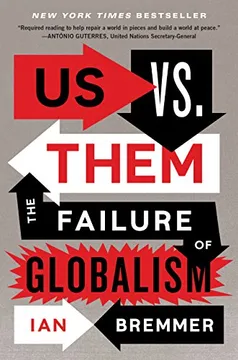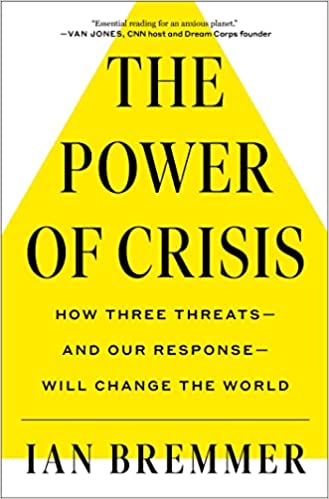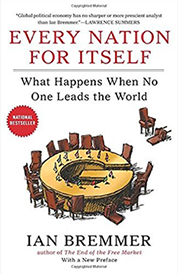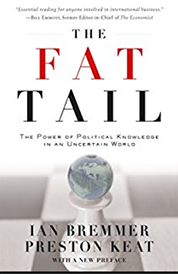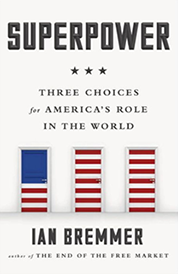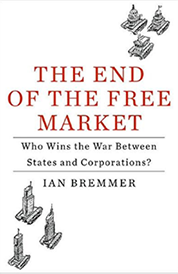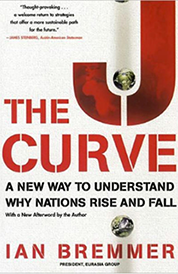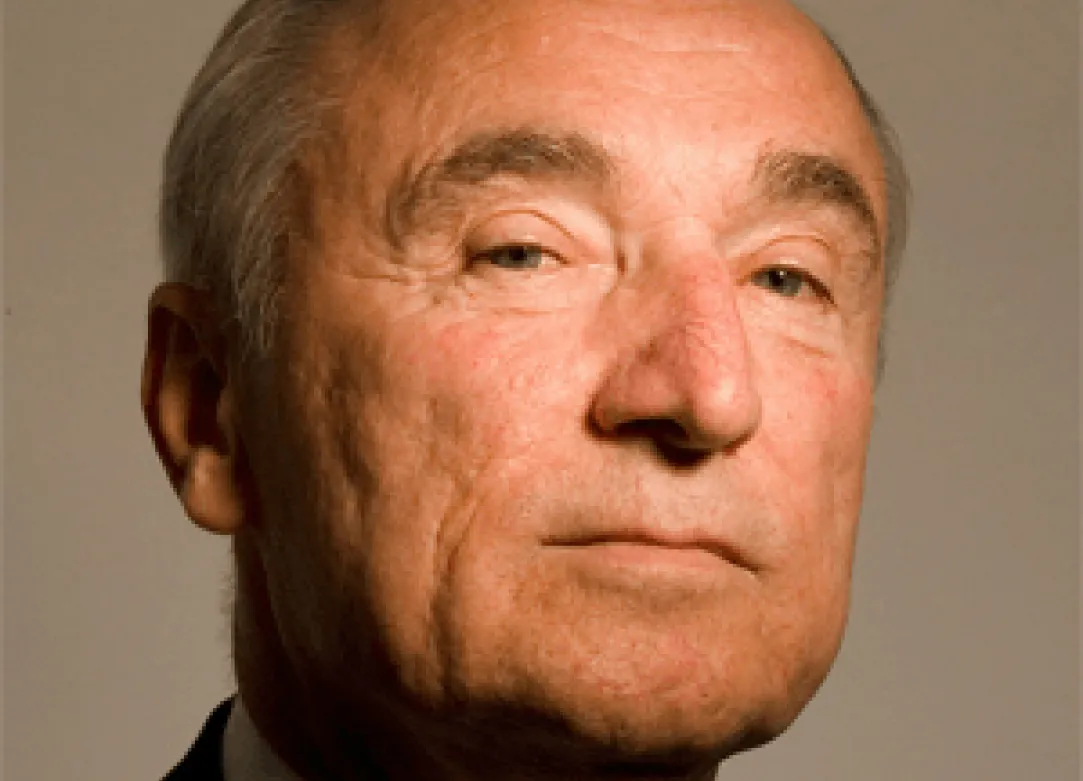Ian Bremmer is a political scientist who helps business leaders, policy makers, and the general public make sense of the world around them. He is president and founder of Eurasia Group, the world's leading political risk research and consulting firm, and GZERO Media, a company dedicated to providing intelligent and engaging coverage of international affairs. Ian is an independent voice on critical issues around the globe, offering clearheaded insights through speeches, written commentary, and even satirical puppets (really!).
Ian is credited with bringing the craft of political risk to financial markets, creating Wall Street's first global political risk index (GPRI), and for establishing political risk as an academic discipline. His definition of emerging markets— "those countries where politics matters at least as much as economics for market outcomes”—has become an industry standard. “G-Zero,” his term for a global power vacuum in which no country is willing and able to set the international agenda, is widely used by policymakers and thought leaders.
A prolific writer, Ian is the author of eleven books, including two New York Times bestsellers, “Us vs Them: The Failure of Globalism” which examines the rise of populism across the world, and his latest book “The Power of Crisis: How Three Threats—and Our Response—Will Change the World” which details a trio of looming global crises (health emergencies, climate change, and technological revolution) and outlines how governments, corporations, and concerned citizens can use these crises to create global prosperity and opportunity.
He is the host of GZERO World with Ian Bremmer, which airs weekly on US national public television. Ian is also a frequent guest on CNN, Fox News, MSNBC, the BBC, Bloomberg, and many other television stations around the world. He also serves as the foreign affairs columnist and editor at large for Time magazine.
Ian earned a master's degree and a doctorate in political science from Stanford University, where he went on to become the youngest-ever national fellow at the Hoover Institution. He received his bachelor's degree in international relations from Tulane University. He currently teaches at Columbia University's School of International and Public Affairs and previously was a professor at New York University.
Ian established Eurasia Group with just $25,000 in 1998. Today, the company has offices in New York, Washington, San Francisco, London, Brasilia, Sao Paulo, Singapore, and Tokyo, as well as a network of experts and resources in 90 countries.
IAN BREMMER
Expert on Global Political Risk, Best-Selling Author, President & Founder of Eurasia Group and GZERO Media
- A thought leader on global political risk, credited with bringing it to financial markets and creating Wall Street's first index of its kind (GPRI)
- Globally-recognized, respected advisor to leading executives, money managers, diplomats and heads of state
- He is president and founder of Eurasia Group, the world's leading political risk research and consulting firm, and GZERO Media, a company dedicated to providing intelligent and engaging coverage of international affairs
- Bestselling author offering analysis on the intersection between politics and markets
- Foreign affairs columnist and editor-at-large at Time Magazine
- Dubbed the “rising guru” in the field of political risk by The Economist
- Named a Young Global Leader of the World Economic Forum, where he is the founding chairman of the Global Agenda Council on Geopolitical Risk
- The youngest-ever national fellow at the Hoover Institution
- Geopolitics
- Financial Markets
- Risk Management
- American Politics
- Global Economy
- Emerging Markets
- Energy Policy
- New Global Order
The next global superpower isn't who you think
Who runs the world? Bremmer argues it's not as simple as it used to be. With some eye-opening questions about the nature of leadership, he invites us to consider the impact of the evolving global order and our choices as participants in the future of democracy.
Ian discusses how technology companies are becoming a vastly more important force in global politics, in many cases more powerful – and less accountable – than governments themselves… and their militaries. He covers the following topics:
- We are now living in a leaderless world. Current geopolitical tensions and conflicts can be attributed to three things 1) Russia’s lack of integration into Western institutions 2) China’s integration into US-led institutions with the presumption that it would make the country more American (it didn’t) and 3) millions across the world feeling left behind by globalization.
- What kind of order can we expect? There isn’t going to be one global system. Instead, there will be three world orders, separate but interconnected:
- The Security order (unipolar) led by the US
- The Economic order (multipolar) US, China, EU, Japan, India
- The Digital order
Superpower: Three Choices for America's Role in the World
Global policy expert Ian Bremmer calls for a complete rethink of America’s role in tomorrow’s world. In an increasingly volatile international environment, the question has never been more important. Bremmer explores three choices, each with its own benefits and drawbacks:
- “Independent America” argues that it’s time for Washington to declare independence from the responsibility to solve everyone else’s problems. Instead, America should lead by example by investing in America’s enormous untapped potential;
- “Moneyball America” acknowledges that we can’t manage every international challenge but asserts that we must defend U.S. interests wherever they’re threatened. It looks beyond phony arguments about American exceptionalism with a clear-eyed assessment of U.S. strengths and limitations; and,
- “Indispensable America” insists that only Washington can promote the values on which global stability increasingly depends in our hyper-connected world. Turning inward would threaten America’s security and prosperity.
The Fat Tail: The Power of Political Knowledge for Strategic Investing
The fallout from the still-unfolding global financial crisis provides several perfect examples of "fat tail" risk, those that flow from the low-probability, high-impact events that generate upheaval more often than we think. Bremmer shares with audiences how an understanding of the political dynamics generated by the financial crisis helps us forecast market risks, why politics matter more than ever for market performance, why the world's wealthiest countries have begun to behave like emerging market states, and what all this means for investors and companies.
At this presentation audiences will learn:
- The risks that flow from low-probability, high-impact events...like the global financial crisis.
- Why politics matter more for the performance of markets and for issues ranging from defaults to nationalization to regulatory reforms.
- Why developed states are behaving more like emerging markets.
- The shift from New York, Shanghai, and Mumbai to Washington, Beijing and Delhi....and the risks that this trend creates.
Managing Risk in an Unstable World
To navigate globalization's choppy waters, every business leader analyzes economic risk when considering overseas investments or looking at market exposure. But do you look beyond reassuring data about per-capita income or economic growth--to assess the political risk of doing business in specific countries? If not, you may get blindsided when political forces shape markets in unexpected ways--from European accession in Turkey, social unrest in India, or protectionist legislation on China. Acclaimed political analyst and entrepreneur Ian Bremmer explains that by blending political and economic risk analysis, you make savvier investment decisions--seizing valuable opportunities around the globe while avoiding danger zones.
At this presentation audiences will learn:
- How to spot political risk on the horizon and balance it against economic opportunities--and what it means for your global investments.
- How to understand the opportunities, and dangers, of dramatic Chinese growth.
- What are the trends around global terror, proliferation, and shifting geopolitics, and how it impacts the global markets.
- What growing political risk means for the global economy--and where the opportunities are.
The Politics of Global Energy
Oil prices are increasingly susceptible to international politics--for both the world's supply and demand. Ian Bremmer, founder and president of the world's largest political risk consultancy, shares his views on what's in store for the politics of global energy--from spiraling Chinese and Indian growth in consumption to the dangers of future oil export from the Middle East, Russia and the Caspian, and West Africa.
At this speech audiences will learn:
- Why international politics matters to oil investors, financial institutions, and consumers alike.
- How to assess the real threats to oil production, and discount the headlines that don't matter.
- How a shift in global relations between the US and China will affect the global energy market.
China, India, and Beyond: The Opportunities and Pitfalls of Asian Growth
China bestrides the world as a colossus, and business leaders can't get enough from the promised riches of Asia. But does unprecedented growth mean that your company will benefit from it? Ian Bremmer, intellectual entrepreneur and President of Eurasia Group, explains the dangers of Asian growth for global investors seeking to build a presence in international markets; for companies seeking to sell their products there; and for the global markets more broadly.
At this speech audiences will learn:
- How to read the political and economic landscape in China, India, and beyond.
- How geopolitics is creating greater risks--and opportunities--for investors in Asia.
America's Role in the 21st Century
America's global power was unchallenged in the immediate aftermath of the Cold War, but today international terrorism, nuclear proliferation, the rise of China, and an increasingly globalized world all pose threats to America's continued leadership. Eurasia Group President Ian Bremmer, founder of the world's largest political risk consultancy, discusses America's national interests, its foreign policy, and the potential for a shift to a multipolar world. The implications for world politics--and the global markets--are critical.
At this speech audiences will learn:
- How America's foreign policy succeeds, and fails, in an increasingly globalized world.
- Where America's national interests are critically challenged by international forces...and where it doesn't matter.
- Who are the winners, and losers, if present world trends in politics and economic continue--in the United States and beyond.


